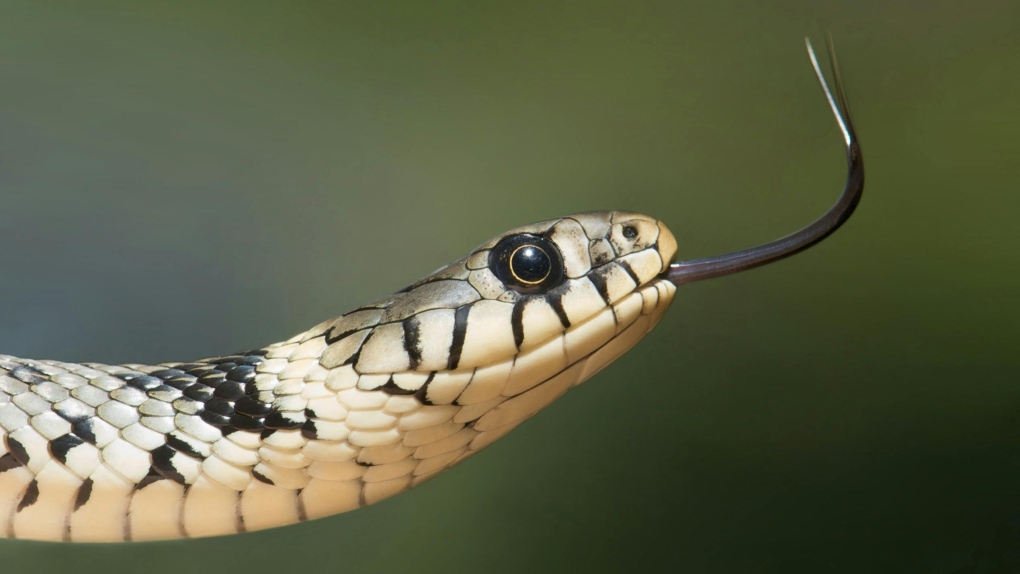10 Alberta salmonella cases confirmed in outbreak linked to snakes, rodents: PHAC

Ten cases of salmonella have been confirmed in Alberta as part of a cross-Canada outbreak linked to snakes and rodents.
The Public Health Agency of Canada (PHAC), alongside provincial health partners, launched an investigation into an outbreak of infections across eight provinces that occurred between February 2022 and February 2024.
As of March 19, there were 70 total confirmed cases across several provinces including British Columbia (three), Alberta (10), Saskatchewan (seven), Manitoba (three), Ontario (32), Quebec (11), New Brunswick (one) and Newfoundland and Labrador (three).
The infections resulted in 10 hospitalizations and one death.
“Many of the individuals who became sick reported direct or indirect contact with snakes and feeder rodents (used as reptile food) before their illnesses occurred,” PHAC said in a public health notice Tuesday.
“Some people who became sick did not touch or handle the snakes or feeder rodents themselves, but lived in the same house where they were kept.”
Salmonella infections can occur after touching reptiles and rodents, their food and their environments, and then touching your face, eyes or mouth without handwashing, according to PHAC.
Thirteen of the 70 confirmed cases were in children five years and younger. Just over half of the cases (53 per cent) were in women.
The investigation was launched in the spring of 2023. Genome sequencing was used to determine that salmonella cases dating back to 2022 were caused by the same outbreak strain as cases in 2023 and 2024.
PHAC said the outbreak is ongoing and recent illnesses continue to be reported.
“More recent illnesses may be reported in the outbreak because there is a period between when a person becomes ill and when the illness is reported to public health officials,” PHAC said.
“For this outbreak, the illness reporting period is between 4 and 6 weeks.”
Salmonella symptoms
Salmonella symptoms typically start within six to 72 hours after exposure and can include fever, chills, nausea, vomiting, diarrhea, headaches and abdominal cramps, PHAC said.
While anyone can become infected with salmonella, older adults, young children, people who are pregnant and people with weakened immune systems are at a higher risk for serious illness.
Symptoms usually last for four to seven days.
Even without symptoms, those infected with salmonella can spread it to others for several days to several weeks after they become infected.
Most people who get sick from a salmonella infection will recover fully without treatment after a few days, but it can also cause severe illness and hospitalization.
How to protect yourself from salmonella
While salmonella infections can occur after touching reptiles and rodents directly, you can also get sick by touching contaminated surfaces or objects where snakes and feeder rodents are kept.
You may encounter snakes and feeder rodents at birthday parties, school or daycare events, museums, science centres, zoos, or at a travelling reptile show.
PHAC offered several tips to help prevent salmonella infections caused by contact with reptiles, rodents and their environments.
- Always wash your hands thoroughly with soap and water immediately after touching a reptile or rodent, anything they eat, or being in an area that they touch.
- Never kiss a pet reptile or rodent.
- Don’t keep reptiles or rodents in the same space as children five years and younger.
- Always supervise children when they touch or play with rodents and reptiles.
- Keep reptiles and rodents, all their food, containers, enclosures and objects away from the kitchen and other places where food is made or eaten.
- Clean enclosures and accessories outside of the home when possible. If that’s not possible, use a laundry sink or bathtub and sanitize it thoroughly afterward.
- Use a dedicated plastic bin to clean or bathe reptiles and rodents – not a household sink.
- Freezing rodents does not kill salmonella.
- Defrost and prepare frozen rodents outside of the kitchen, using dedicated utensils and containers.
- Stress for reptiles can increase their shedding of salmonella, so be aware of their specific needs.
- Keep reptiles and rodents in habitats specifically designed for them.
PHAC has more information about salmonella and reptiles on its website.
View original article here Source









